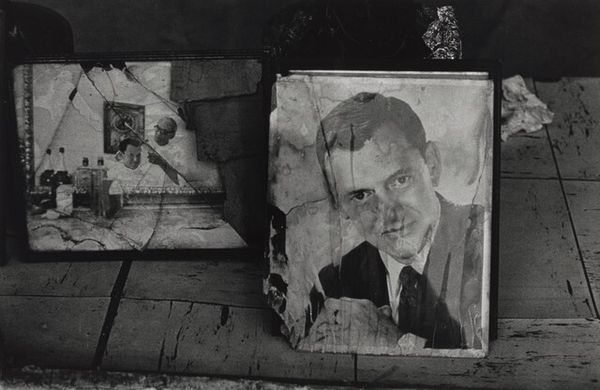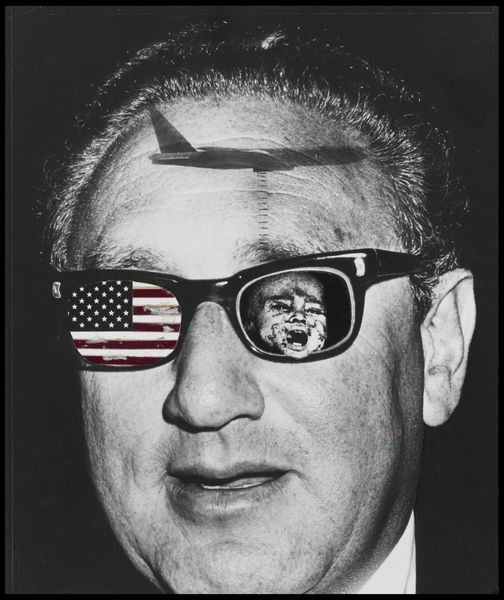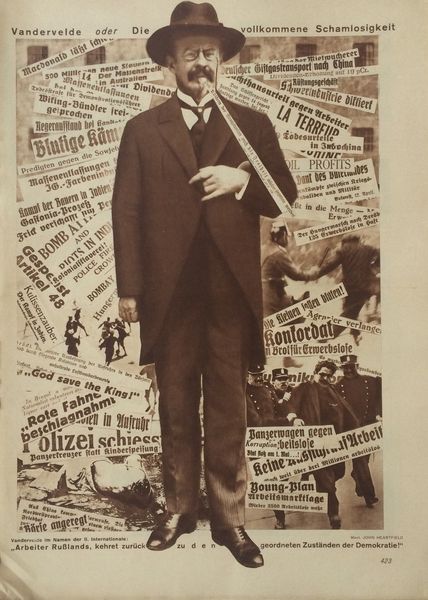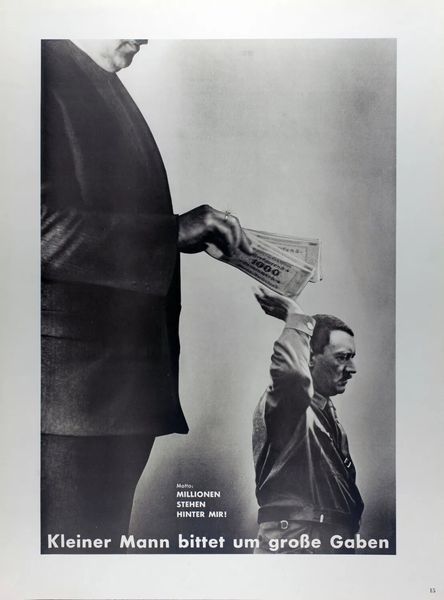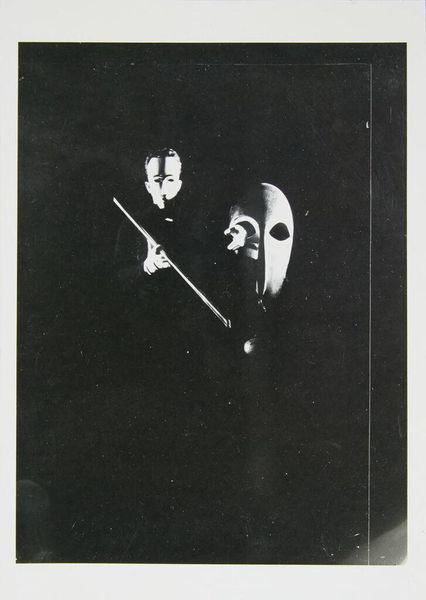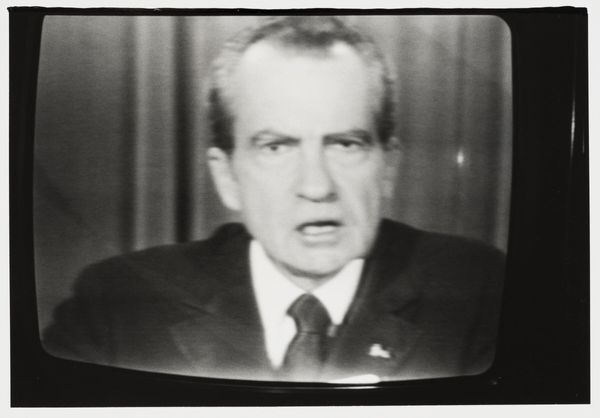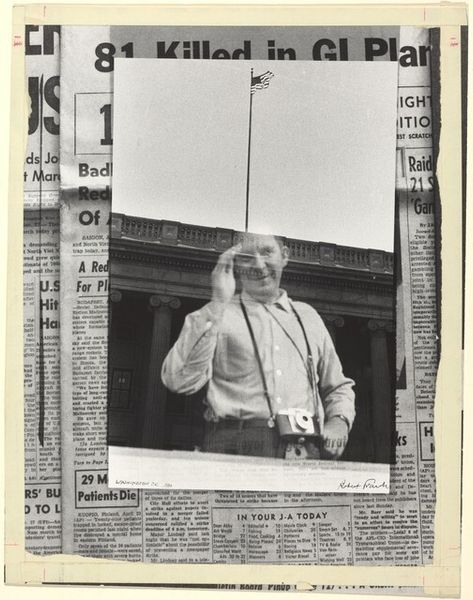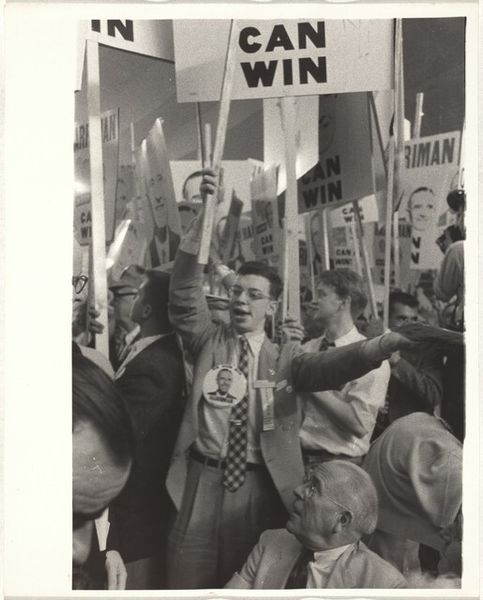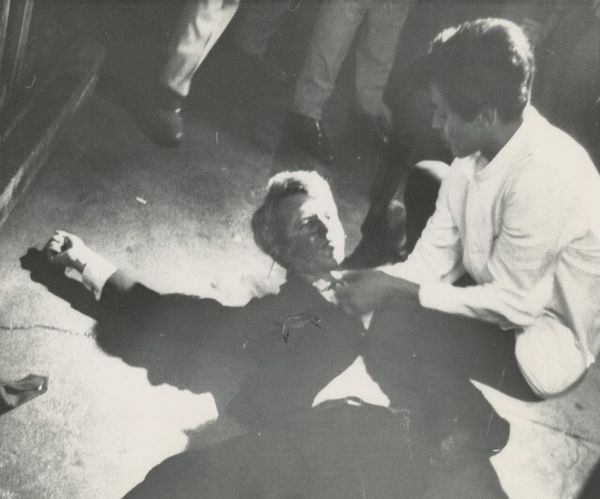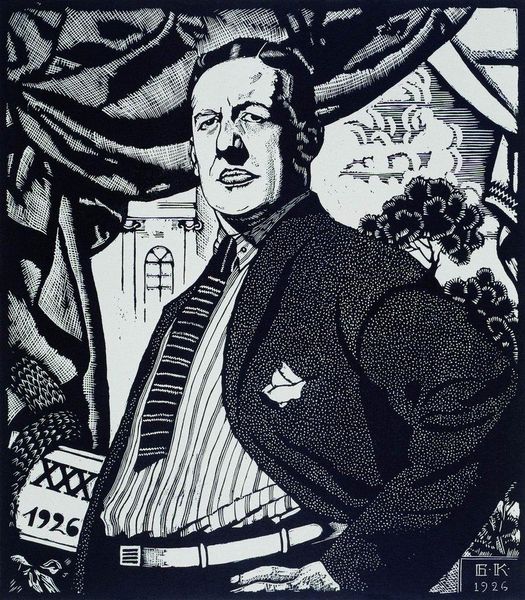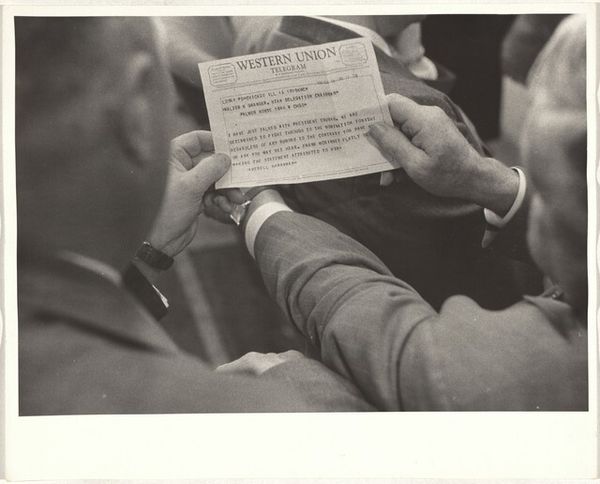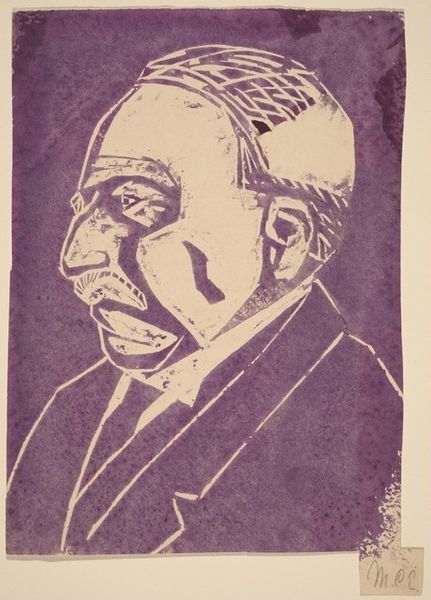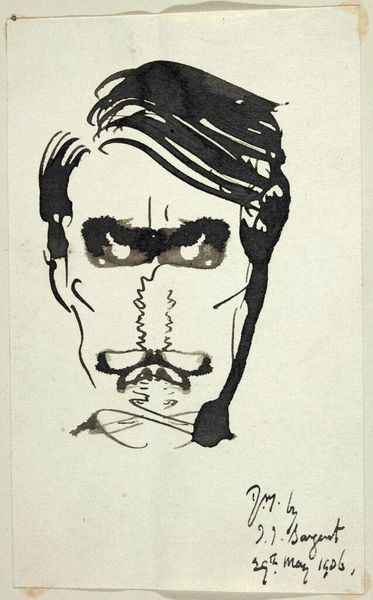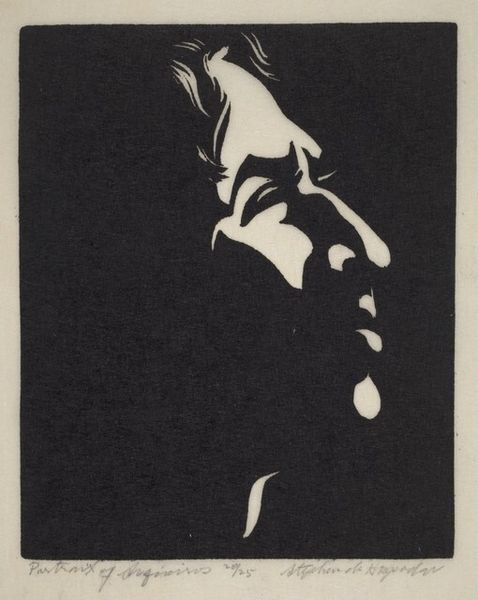
photography
#
portrait
#
portrait
#
appropriation
#
black and white format
#
photography
#
black and white
#
pop-art
Copyright: Ralston Crawford,Fair Use
Editor: So, this work, "Buckley," a photograph, presents a distorted campaign poster. There’s a feeling of decay, or even violence, about the defaced image. What's your take? Curator: It’s interesting how Ralston Crawford appropriates and transforms a political image. This isn't just a portrait; it’s a statement on the ephemeral nature of political power and the public's relationship to imagery. Consider how Crawford’s work often intersected with socio-political commentary, particularly on institutions. Editor: So, you see the poster's degradation as symbolic of… what exactly? Political decline? Public distrust? Curator: Both, and more. Think about the context in which this photograph might have been created. Was it during a time of heightened political unrest? Does the fragmentation mirror a societal fragmentation? Crawford is not just presenting a portrait; he's capturing a cultural moment and how political images are received, manipulated, and ultimately, discarded. The act of tearing and defacing—does it appear random, or does it reflect specific political anxieties? Editor: That’s a perspective I hadn’t considered. It makes me think about the visual culture of protest. Now that you mention the social element, the political defacement looks more pointed, perhaps expressing rejection of political discourse. Curator: Exactly! By focusing on appropriation and manipulation, we begin to grasp Crawford's commentary on the mechanisms of political messaging and the volatile relationship between the public and those in power. It encourages us to examine how political images are not just seen, but also actively contested. Editor: Fascinating. I had a surface-level understanding before, but now I see how the damage is less destructive and more a visual statement. Curator: Indeed. It highlights art's role in documenting and shaping our understanding of cultural dynamics.
Comments
No comments
Be the first to comment and join the conversation on the ultimate creative platform.
